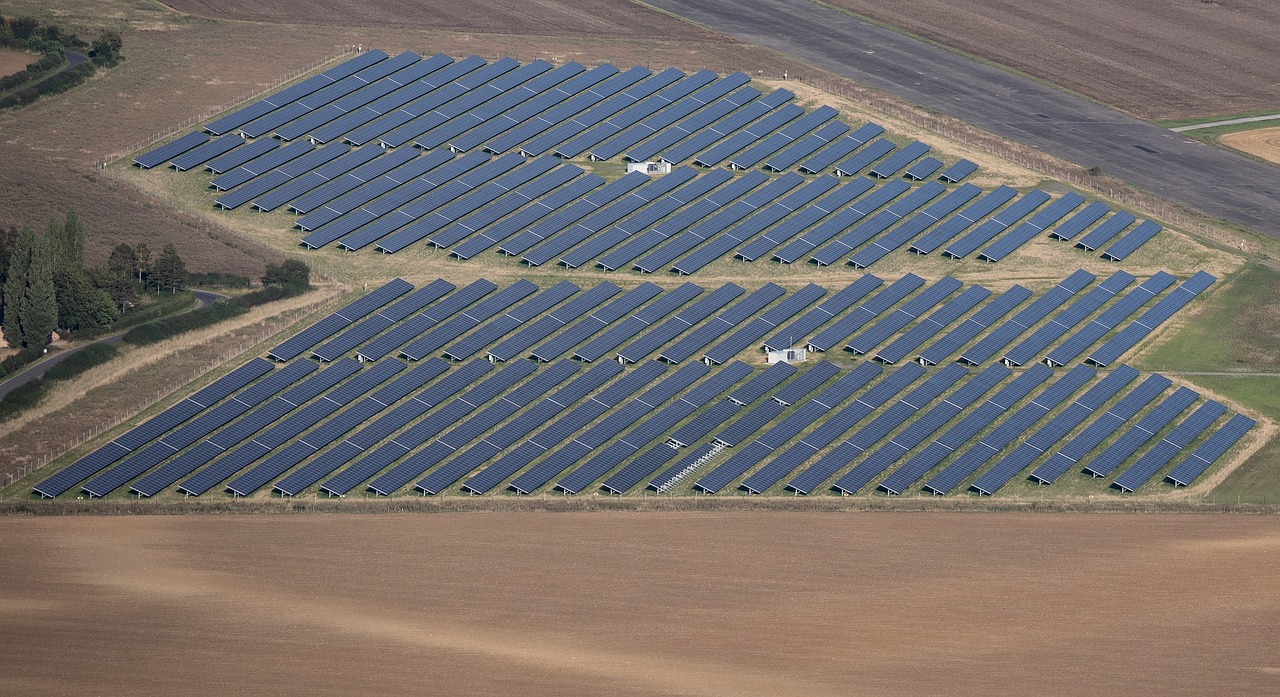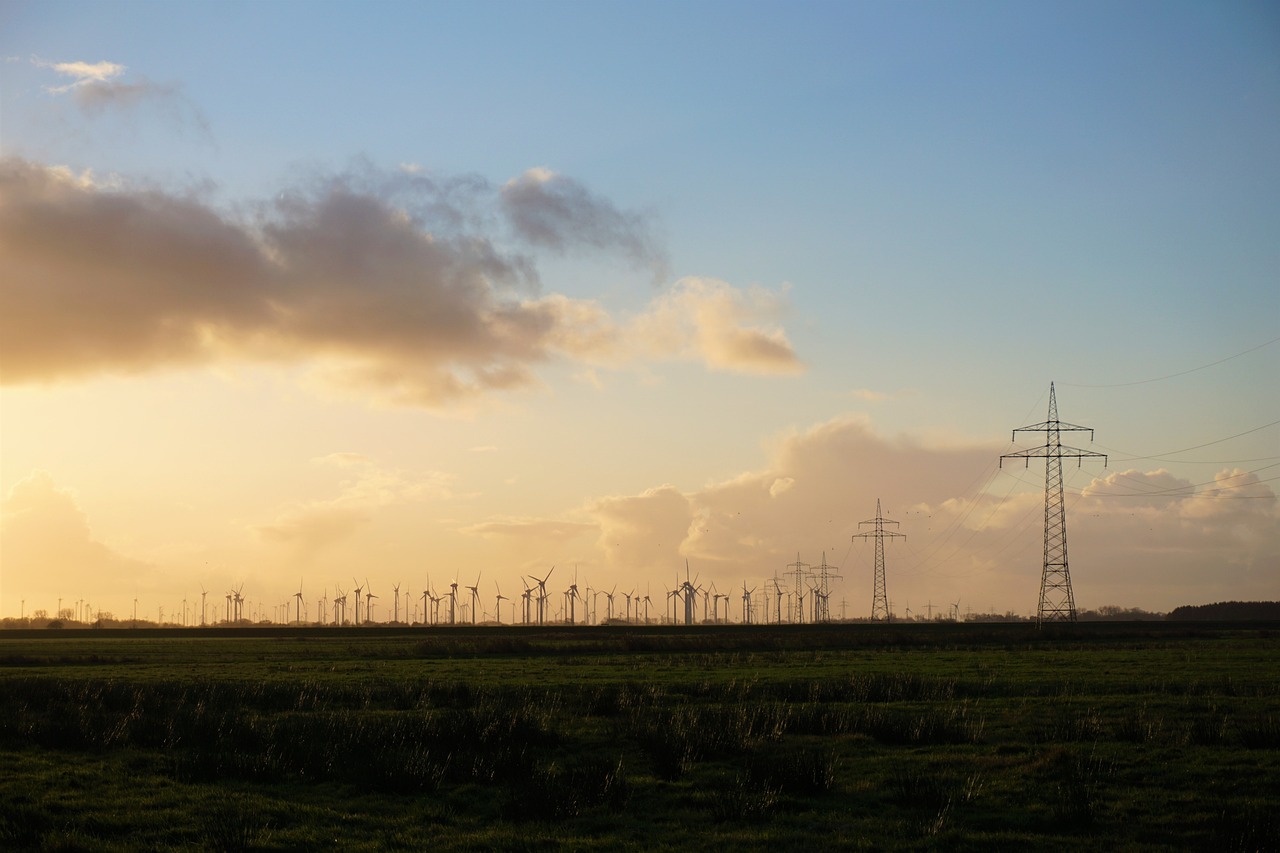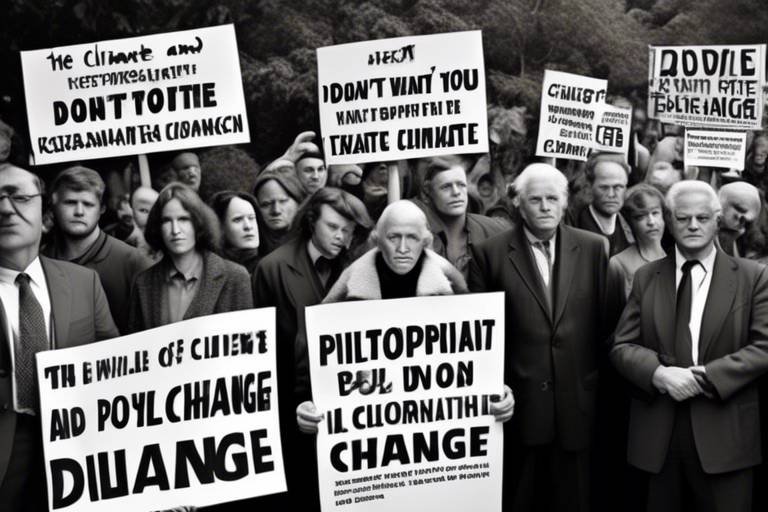The Philosophy and Politics of Sustainable Development
Sustainable development is not just a buzzword; it’s a complex interplay of philosophical ideals and political frameworks that shape our world today. Imagine a world where economic growth, social inclusion, and environmental protection coexist harmoniously. Sounds utopian, right? But this is the essence of sustainable development. It’s about finding that sweet spot where society can thrive without compromising the planet for future generations. In this article, we will explore the intricate relationship between these philosophical principles and the political structures that govern them, diving deep into their implications for our society, economy, and environment.
The concept of sustainable development emerged from the realization that unchecked growth and exploitation of resources lead to dire consequences. Think of it like a garden: if you only focus on the flowers and neglect the soil, eventually, the flowers will wilt. Similarly, our planet needs a balanced approach that nurtures both its resources and its people. This balance is where philosophy and politics come into play, guiding us toward a more sustainable future.
At its core, sustainable development challenges us to rethink our values and priorities. It pushes us to ask tough questions: What does it mean to live sustainably? How do we ensure that our actions today do not limit the options available to future generations? These questions are not merely academic; they are fundamental to how we approach governance and policy-making in the 21st century.
In this journey, we will delve into the theoretical foundations of sustainable development, examining various ethical frameworks such as environmental justice and intergenerational equity. We will also analyze the political frameworks that support these ideals, exploring the roles of governments, international organizations, and grassroots movements in shaping sustainability initiatives across the globe.
As we navigate through this article, we will uncover the challenges that lie ahead. Despite the progress made, numerous obstacles hinder sustainable development, such as political resistance, economic inequalities, and environmental degradation. However, it’s not all doom and gloom. By understanding these challenges, we can better equip ourselves to tackle them head-on and work towards a more sustainable future.
So, buckle up as we embark on this enlightening journey through the philosophy and politics of sustainable development, where every insight gained brings us one step closer to a world that values sustainability as much as it does progress.
- What is sustainable development? Sustainable development refers to a development approach that meets the needs of the present without compromising the ability of future generations to meet their own needs.
- Why is the philosophy of sustainable development important? The philosophy of sustainable development provides the ethical foundation for policies and practices aimed at achieving a balance between economic growth, social equity, and environmental protection.
- What are some challenges to sustainable development? Key challenges include political resistance, economic inequalities, environmental degradation, and social and cultural barriers.
- How can individuals contribute to sustainable development? Individuals can contribute by adopting sustainable practices in their daily lives, supporting local and sustainable businesses, and advocating for policies that promote sustainability.

[Theoretical Foundations of Sustainable Development]
Understanding the philosophical underpinnings of sustainable development is crucial for grasping its significance in today's world. At its core, sustainable development is not just about environmental preservation; it embodies a complex interplay of ethics, justice, and equity. Imagine a three-legged stool: if one leg is weak, the whole structure collapses. Similarly, the theories supporting sustainability must be robust and interconnected to ensure a balanced approach to our social, economic, and environmental challenges.
One of the foundational theories of sustainable development is environmental ethics. This philosophy emphasizes the intrinsic value of nature, arguing that the environment deserves moral consideration beyond its utility to humans. Think of it this way: if we only value trees for the paper they produce, we miss out on their role in maintaining biodiversity, regulating climate, and providing habitat. Embracing environmental ethics encourages us to respect and protect our natural surroundings, fostering a more harmonious relationship between humanity and nature.
Another critical aspect is environmental justice. This concept highlights the fair distribution of environmental benefits and burdens across different social groups. It challenges the notion that marginalized communities should bear the brunt of environmental degradation. For instance, when industries pollute rivers, it is often the low-income neighborhoods nearby that suffer the most. By advocating for environmental justice, we strive for a world where every community has access to clean air, water, and a healthy environment, regardless of their socioeconomic status.
Moreover, the principle of intergenerational equity plays a pivotal role in sustainable development. This idea posits that we have a moral obligation to future generations to preserve resources and maintain ecological integrity. Just as we inherit the Earth from our ancestors, it is our responsibility to ensure that our descendants inherit a planet that is not depleted or damaged. This perspective urges us to think long-term and make choices today that will not compromise the well-being of future inhabitants.
To better illustrate these concepts, let's look at a table that summarizes the key theories underpinning sustainable development:
| Theory | Description |
|---|---|
| Environmental Ethics | Focuses on the intrinsic value of nature and the moral obligation to protect it. |
| Environmental Justice | Advocates for fair distribution of environmental benefits and burdens across all social groups. |
| Intergenerational Equity | Emphasizes the responsibility to preserve resources for future generations. |
In conclusion, the theoretical foundations of sustainable development are deeply rooted in ethical considerations that challenge us to rethink our relationship with the environment. By integrating environmental ethics, justice, and intergenerational equity into our policies and practices, we can create a more sustainable and equitable world. So, the next time you consider sustainability, remember that it’s not just about what we do today; it’s about ensuring a thriving planet for generations to come.
- What is sustainable development? Sustainable development is an approach to growth that seeks to balance economic, social, and environmental needs, ensuring that resources are used responsibly without compromising future generations.
- Why is environmental ethics important? Environmental ethics is crucial because it encourages respect for nature and promotes the idea that all living beings have intrinsic value, guiding us towards more responsible environmental stewardship.
- How can we achieve environmental justice? Achieving environmental justice requires active advocacy for policies that ensure all communities have equal access to a clean and healthy environment, as well as addressing historical inequities in resource distribution.

[Political Frameworks for Sustainability]
When we talk about sustainable development, it's essential to recognize that it doesn't just happen in a vacuum. It requires a robust political framework that can adapt to the ever-changing dynamics of society, economy, and the environment. Political frameworks for sustainability are essentially the structures and processes that guide decision-making, resource allocation, and policy implementation in a way that promotes long-term ecological balance. In this context, various actors come into play, including governments, international organizations, and grassroots movements, each contributing to the overarching goal of sustainability.
At the heart of these political frameworks is the need for **collaboration**. Governments must work alongside non-governmental organizations (NGOs), businesses, and the community to create policies that are not only effective but also equitable. For instance, consider how local governments can implement policies that promote renewable energy sources. By engaging with local businesses and residents, they can create incentives that encourage the adoption of solar panels or wind turbines. This collaborative approach fosters a sense of ownership among the community, making it more likely that sustainability initiatives will succeed.
Moreover, international cooperation is crucial for tackling global sustainability challenges. Many environmental issues, such as climate change and biodiversity loss, do not respect national borders. As a result, global governance structures, such as treaties and international organizations, play a pivotal role in facilitating cooperation among nations. For example, the Paris Agreement is a landmark treaty that aims to unite countries in their efforts to combat climate change. It sets out clear targets for reducing greenhouse gas emissions and encourages nations to share best practices and technologies.
| Political Actors | Roles in Sustainability |
|---|---|
| National Governments | Formulate and implement policies, regulations, and incentives for sustainable practices. |
| International Organizations | Facilitate cooperation, provide funding, and establish global sustainability frameworks. |
| Local Governments | Implement community-specific sustainability initiatives and policies. |
| Grassroots Movements | Raise awareness, advocate for policy changes, and drive local sustainability efforts. |
However, while the frameworks are in place, they often face significant challenges. Political resistance can stem from various sources, including vested interests that may not align with sustainability goals. For instance, industries reliant on fossil fuels may lobby against policies promoting renewable energy. This highlights the importance of public engagement and advocacy in pushing for sustainable policies. When citizens are informed and organized, they can hold politicians accountable and demand action.
In addition, the role of local governance cannot be overstated. Local governments are often more in tune with the specific needs and concerns of their communities. By empowering local leaders and engaging citizens in the decision-making process, we can create tailored solutions that resonate with the community. Imagine a town that faces frequent flooding; local policymakers can prioritize green infrastructure projects, such as rain gardens and permeable pavements, to mitigate these issues while enhancing the community's resilience.
In conclusion, the political frameworks for sustainability are multifaceted and require a collaborative approach that includes various stakeholders. From national governments to grassroots movements, everyone has a role to play in promoting sustainable practices. By fostering cooperation, engaging communities, and overcoming political resistance, we can create a more sustainable future for all.
- What is sustainable development? Sustainable development refers to meeting the needs of the present without compromising the ability of future generations to meet their own needs.
- Why are political frameworks important for sustainability? They provide the necessary structures and processes to guide decision-making and resource allocation in a way that promotes long-term ecological balance.
- How can individuals contribute to sustainable development? Individuals can support sustainability by advocating for policies, engaging in community initiatives, and making environmentally conscious choices in their daily lives.

[Global Governance and Sustainability]
The concept of global governance is increasingly recognized as a key player in the quest for sustainability. It acts as a framework that enables countries to collaborate and tackle the pressing challenges of our time, such as climate change, biodiversity loss, and social inequality. Imagine a massive orchestra where each country is an instrument; global governance is the conductor that ensures harmony among all the players. Without this coordination, the symphony of sustainable development would fall into disarray.
International treaties and organizations are the backbone of this governance structure. They create a platform for nations to come together, share knowledge, and commit to common goals. For instance, the Paris Agreement is a landmark accord that unites nearly all the world’s nations in a single agreement to tackle climate change. This is not just a piece of paper; it represents a collective promise to future generations. By setting specific targets for reducing greenhouse gas emissions, the agreement illustrates how global governance can mobilize countries towards sustainable practices.
Furthermore, organizations like the United Nations (UN) play a pivotal role in this governance landscape. The UN not only facilitates discussions among countries but also provides resources, expertise, and frameworks that guide nations in their sustainability efforts. Through various initiatives, such as the Sustainable Development Goals (SDGs), the UN sets a global agenda that outlines specific targets for poverty alleviation, environmental protection, and social equity. These goals serve as a roadmap for countries, encouraging them to align their policies with broader sustainability objectives.
However, global governance is not without its challenges. The disparity in power dynamics among countries can lead to unequal participation in decision-making processes. Wealthier nations often have more influence, which can skew priorities and outcomes in favor of their interests. This imbalance can undermine the effectiveness of global initiatives, as the voices of developing nations may be drowned out. To truly achieve sustainability, it is crucial to ensure that all countries, regardless of their economic status, have a seat at the table and an equal say in shaping policies that affect their futures.
In addition, the complexity of global issues requires innovative solutions that transcend borders. For example, issues like ocean pollution and deforestation do not respect national boundaries. This necessitates a collaborative approach where countries can share best practices and technologies. One effective way to facilitate this collaboration is through multi-stakeholder partnerships that include not only governments but also businesses, non-profits, and civil society. By bringing together diverse perspectives and resources, these partnerships can create comprehensive strategies that address sustainability challenges holistically.
In conclusion, global governance is a critical component in the pursuit of sustainable development. It provides the necessary framework for international cooperation, enabling countries to work together towards a common goal. While challenges remain, the potential for a unified global approach to sustainability is immense. By fostering collaboration and ensuring equitable participation, we can create a more sustainable world for current and future generations.
- What is global governance?
Global governance refers to the way international affairs are managed across countries, focusing on cooperation to address global challenges.
- How does the UN contribute to sustainability?
The UN facilitates international cooperation through initiatives like the Sustainable Development Goals (SDGs), which set targets for sustainable practices.
- What are the main challenges of global governance?
Challenges include power imbalances among nations, unequal participation, and the complexity of transboundary issues.
- Why is collaboration important in sustainability?
Collaboration allows countries to share resources, knowledge, and best practices, making it easier to tackle complex sustainability challenges.

[The Role of the United Nations]
The United Nations (UN) stands as a beacon of hope and cooperation in the realm of sustainable development. Established in 1945, the UN has evolved into a pivotal organization that not only addresses global conflicts but also champions the cause of sustainability. At the heart of its mission lies the commitment to foster peace, security, and development, making it an essential player in the pursuit of a sustainable future for all. One of the UN's most significant contributions is the establishment of the Sustainable Development Goals (SDGs), a universal call to action designed to eradicate poverty and achieve a better and more sustainable future by 2030.
The SDGs consist of 17 goals that tackle various aspects of sustainability, including poverty alleviation, gender equality, clean water, and climate action. Each goal is interconnected, reflecting the complexity of global challenges and the need for collaborative solutions. For instance, Goal 13 focuses on climate action, while Goal 6 emphasizes clean water and sanitation. The interdependence of these goals highlights how progress in one area can significantly impact others, creating a ripple effect that benefits society, the economy, and the environment.
Moreover, the UN plays a crucial role in facilitating international cooperation through various treaties and agreements. For example, the Paris Agreement is a landmark accord aimed at combating climate change and its impacts. This agreement unites nations in their commitment to keep global warming below 2 degrees Celsius, emphasizing the importance of collective action. The UN's ability to bring together countries, organizations, and stakeholders fosters a collaborative atmosphere that is vital for addressing the multifaceted nature of sustainable development.
In addition to these global initiatives, the UN also supports capacity-building efforts in developing countries. Through its various agencies, such as the United Nations Development Programme (UNDP) and the United Nations Environment Programme (UNEP), the organization provides technical assistance, funding, and expertise to help nations implement sustainable practices. This support is crucial for empowering local communities and ensuring that sustainability efforts are not only top-down but also driven by grassroots engagement.
Furthermore, the UN emphasizes the importance of partnerships in achieving sustainable development. The 2030 Agenda for Sustainable Development calls for collaboration among governments, civil society, and the private sector. This multi-stakeholder approach recognizes that no single entity can tackle the challenges of sustainability alone. By fostering inclusive partnerships, the UN encourages shared responsibility and accountability, which are essential for long-lasting impact.
In summary, the United Nations plays an indispensable role in promoting sustainable development on a global scale. Through its initiatives, treaties, and partnerships, the UN not only addresses pressing global issues but also inspires hope and action among nations and communities. The journey towards sustainability is undoubtedly complex, but with the UN at the forefront, the world is better equipped to face these challenges and work towards a sustainable future.
- What are the Sustainable Development Goals (SDGs)?
The SDGs are a set of 17 global goals established by the United Nations to address various social, economic, and environmental challenges and promote sustainable development by 2030. - How does the UN support developing countries?
The UN provides technical assistance, funding, and expertise to help developing countries implement sustainable practices through its agencies like UNDP and UNEP. - Why are partnerships important for sustainable development?
Partnerships facilitate collaboration among governments, civil society, and the private sector, ensuring that sustainability efforts are comprehensive and effective.

[Local Governance and Community Engagement]
Local governance plays a crucial role in the realization of sustainable development goals. It acts as the bridge between national policies and community needs, ensuring that sustainability initiatives are not only formulated but also effectively implemented at the grassroots level. When local governments engage with their communities, they can tailor sustainability practices to fit the unique characteristics, challenges, and aspirations of the population they serve. This personalized approach fosters a sense of ownership among community members, making them more likely to actively participate in sustainability efforts.
One of the most significant aspects of local governance is its ability to mobilize community engagement. By involving citizens in decision-making processes, local governments can harness the knowledge, skills, and perspectives of their residents. This engagement can take many forms, from public consultations and workshops to collaborative projects that empower community members. For instance, local councils might organize community clean-up events or tree-planting initiatives, which not only beautify the environment but also build community spirit and awareness around sustainability issues.
Furthermore, local governance can facilitate partnerships between various stakeholders, including non-profit organizations, businesses, and educational institutions. These collaborations can lead to innovative solutions that address local sustainability challenges. For example, a partnership between a local government and a university might result in research projects focused on sustainable agriculture practices tailored to the region's specific climate and soil conditions. Such initiatives not only advance sustainability goals but also strengthen the local economy by creating jobs and promoting local expertise.
However, the effectiveness of local governance in promoting sustainable development is not without its challenges. Limited resources, political instability, and lack of public awareness can hinder community engagement efforts. To overcome these obstacles, local governments must prioritize transparency and communication. Creating platforms for dialogue, such as town hall meetings or online forums, can help bridge the gap between local authorities and residents. By fostering an open and inclusive environment, local governments can encourage community members to voice their concerns, share their ideas, and collaborate on sustainability initiatives.
In conclusion, local governance and community engagement are indispensable components of sustainable development. By empowering citizens and fostering collaboration among stakeholders, local governments can drive meaningful change that resonates with the community. As we move forward, it is essential to recognize that sustainability is not merely a top-down approach; it thrives when communities come together to champion their own futures.
- What is the role of local governance in sustainable development?
Local governance plays a vital role by connecting national policies to community needs, ensuring that sustainability initiatives are effectively implemented at the grassroots level. - How can communities engage with local governments?
Communities can engage through public consultations, collaborative projects, and by participating in local decision-making processes. - What are some challenges faced by local governance in promoting sustainability?
Challenges include limited resources, political instability, and lack of public awareness, which can hinder community engagement efforts. - Why is community involvement important in sustainability initiatives?
Community involvement fosters a sense of ownership, making residents more likely to participate in and support sustainability efforts.

[Ethics and Sustainability]
When we talk about sustainability, we can't ignore the ethical considerations that underpin our actions and decisions. At its core, sustainability is not just about conserving resources or protecting the environment; it's about creating a world where future generations can thrive. This means we have a moral obligation to consider how our actions today will impact those who come after us. It's a bit like planting a tree: if we only think about the shade it provides us now, we might neglect to nurture it for the future. The ethical framework surrounding sustainability is multifaceted, encompassing various principles that guide our choices.
One of the most significant ethical principles is the concept of intergenerational equity. This principle advocates for fairness between generations, ensuring that we do not deplete resources or cause harm that future generations will have to bear. Imagine a family that inherits a beautiful garden; it’s their responsibility to maintain it for their children and grandchildren. Similarly, we must think of our planet as a shared garden, where every action we take today should contribute to its health and sustainability for future inhabitants.
Moreover, environmental justice plays a crucial role in the ethics of sustainability. This idea emphasizes that all individuals, regardless of their socioeconomic status, race, or background, should have equal access to a healthy environment. Unfortunately, marginalized communities often bear the brunt of environmental degradation, facing issues like pollution and lack of resources. By advocating for environmental justice, we acknowledge the inherent rights of all people to live in a safe and healthy environment, making it a fundamental ethical consideration in sustainability efforts.
In addition to these principles, we also need to consider the ethical implications of our consumption patterns. The way we consume resources and products can either contribute to or detract from sustainability. For instance, opting for locally sourced and sustainably produced goods not only supports local economies but also reduces our carbon footprint. This conscious choice reflects a deeper ethical commitment to both our community and the planet.
To further illustrate the ethical dimensions of sustainability, let’s look at a few key ethical considerations:
- Respect for Nature: Recognizing the intrinsic value of nature and the interconnectedness of all living things.
- Responsibility: Acknowledging our duty to protect the environment and ensure the well-being of future generations.
- Equity: Striving for fairness and justice in environmental policies and practices.
Ultimately, the ethics of sustainability compel us to reflect on our values and priorities. They challenge us to ask tough questions: Are we doing enough to protect our planet? Are we considering the voices of those who are often unheard in sustainability discussions? By integrating ethical considerations into our sustainability practices, we can foster a more just and equitable world. In this journey, every small action counts, and collectively, they can lead to significant change.
Q1: Why is ethics important in sustainability?
A1: Ethics provides a moral framework that guides our decisions and actions towards creating a sustainable future. It ensures that we consider the impact of our choices on future generations and marginalized communities.
Q2: What is intergenerational equity?
A2: Intergenerational equity is the principle that we should manage our resources and environment in a way that does not compromise the ability of future generations to meet their own needs.
Q3: How can individuals promote environmental justice?
A3: Individuals can promote environmental justice by advocating for policies that protect marginalized communities, supporting sustainable local businesses, and raising awareness about environmental issues that disproportionately affect certain groups.

[Challenges to Sustainable Development]
Despite the growing awareness and efforts towards sustainable development, a myriad of challenges continues to obstruct progress. These challenges are multifaceted, often intertwining political, economic, and social threads that make the journey towards sustainability a complex and daunting task. At the heart of these obstacles lies the fundamental question: how do we reconcile short-term gains with long-term sustainability? This dilemma is not merely theoretical; it manifests in real-world scenarios that affect communities and ecosystems alike.
One of the most significant barriers to sustainable development is political resistance. Governments may prioritize immediate economic growth over long-term sustainability goals, often influenced by lobbying from powerful industries. This creates a paradox where policies that could benefit the environment and society are sidelined in favor of short-term economic benefits. Moreover, the lack of political will can lead to ineffective implementation of sustainability initiatives. For instance, even when sustainable practices are legislated, inadequate enforcement or lack of funding can render these policies ineffective.
Economic inequalities further complicate the landscape of sustainable development. Wealth disparities not only affect access to resources but also influence the priorities of different social groups. The affluent may prioritize sustainability in their consumption patterns, while economically disadvantaged communities often struggle to meet basic needs. This disparity can lead to a situation where sustainability efforts are perceived as elitist, alienating those who feel excluded from the conversation. Addressing these inequalities is crucial for fostering a more inclusive approach to sustainable development.
Environmental degradation is another pressing challenge. The detrimental impacts of climate change, pollution, and biodiversity loss are increasingly evident, threatening the very foundations of sustainable development. For instance, deforestation not only contributes to climate change but also disrupts local ecosystems and the livelihoods of indigenous communities. As we push for sustainable practices, it is essential to recognize that environmental health is intrinsically linked to social and economic well-being.
Moreover, social and cultural factors can pose significant challenges to the adoption of sustainable practices. In many regions, traditional values and norms may conflict with modern sustainability initiatives. For example, communities that rely on resource extraction for their livelihoods may resist changes that threaten their economic foundation, even if those changes are necessary for long-term sustainability. This highlights the importance of engaging local communities in sustainability discussions, ensuring that their voices are heard and their needs are met.
In summary, the challenges to sustainable development are deeply rooted in a complex interplay of political, economic, and social factors. Addressing these challenges requires a holistic approach that encompasses not only environmental considerations but also social equity and economic viability. By fostering collaboration among governments, businesses, and communities, we can pave the way for a more sustainable future that benefits all.
- What are the main challenges to sustainable development? The main challenges include political resistance, economic inequalities, environmental degradation, and social and cultural factors that hinder the adoption of sustainable practices.
- How does political resistance affect sustainability efforts? Political resistance can lead to the prioritization of short-term economic gains over long-term sustainability goals, resulting in ineffective policies and lack of enforcement.
- Why are economic inequalities a barrier to sustainable development? Economic inequalities can create a divide in access to resources and influence priorities, making sustainability initiatives seem elitist and excluding economically disadvantaged communities.
- How can we address the social and cultural challenges to sustainability? Engaging local communities in sustainability discussions and ensuring their voices are included in decision-making processes can help bridge the gap between traditional values and modern sustainability initiatives.

[Economic Barriers]
When we think about sustainable development, it's easy to envision a world where resources are used wisely, and the environment is protected for future generations. However, the path to achieving this ideal is littered with significant economic barriers that can hinder progress. These barriers are not just abstract concepts; they manifest in real-world challenges that affect how communities and nations prioritize sustainability. One of the most pressing issues is the market dynamics that often prioritize short-term profits over long-term sustainability. Companies are frequently driven by the need to maximize their quarterly earnings, which can lead to practices that are detrimental to the environment. For instance, industries that rely heavily on fossil fuels may resist transitioning to renewable energy sources due to the initial costs involved, despite the long-term benefits.
Moreover, resource allocation plays a crucial role in shaping sustainable development efforts. When funds are limited, governments and organizations often face tough choices about where to invest. Sadly, sustainability initiatives may take a backseat to more immediate economic concerns, such as job creation or infrastructure development. This short-sightedness can lead to a cycle where environmental degradation results in higher costs down the line, creating a false economy that ultimately undermines both ecological and economic health. For example, consider a community that opts not to invest in green technologies today; they may find themselves facing much higher costs in the future due to climate-related disasters or health issues stemming from pollution.
Additionally, financial systems can also pose challenges to sustainable development. Traditional banking models often favor established businesses with proven track records, leaving innovative green startups struggling to secure funding. This bias can stifle creativity and innovation in sustainability practices, as new ideas often require upfront investment before they can demonstrate profitability. Furthermore, the lack of incentives for businesses to adopt sustainable practices can perpetuate a cycle of environmental harm. Without subsidies or tax breaks for green initiatives, companies may see little reason to change their ways.
To illustrate these points, let's take a look at a
| Economic Barrier | Description |
|---|---|
| Market Dynamics | Short-term profit motives often overshadow long-term sustainability goals. |
| Resource Allocation | Limited funding leads to prioritization of immediate economic needs over sustainable practices. |
| Financial Systems | Traditional banking models favor established businesses, hindering innovative green startups. |
| Lack of Incentives | Absence of subsidies or tax breaks discourages businesses from adopting sustainable practices. |
In conclusion, addressing these economic barriers is not just a matter of policy change; it requires a fundamental shift in how we view the relationship between the economy and the environment. By fostering a culture that values sustainability and incentivizes green practices, we can begin to dismantle these barriers and pave the way for a more sustainable future. It's a challenging journey, but with collective effort and innovative thinking, we can overcome these economic obstacles and create a world that thrives in harmony with nature.
- What are the main economic barriers to sustainable development?
Key barriers include market dynamics that prioritize short-term profits, limited resource allocation for sustainable initiatives, traditional financial systems that favor established businesses, and a lack of incentives for adopting green practices.
- How can we overcome these economic barriers?
Overcoming these barriers requires policy changes, increased funding for sustainable initiatives, and creating incentives for businesses to adopt environmentally friendly practices.
- Why is it important to address economic barriers for sustainability?
Addressing these barriers is crucial for ensuring that sustainability efforts are prioritized and effectively implemented, leading to long-term ecological and economic health.

[Social and Cultural Challenges]
When we think about sustainable development, it’s easy to get lost in the technicalities of policies and environmental statistics. However, the social and cultural challenges that accompany these initiatives are just as critical, if not more so. Imagine trying to plant a tree in rocky soil; without addressing the underlying issues, the tree won't flourish. Similarly, sustainable development efforts can struggle if they don't consider the societal norms, values, and cultural contexts in which they are implemented.
One of the key obstacles is the resistance to change. Many communities have long-standing traditions and ways of life that may conflict with new sustainability initiatives. For instance, a community that relies on fishing as a primary source of income may resist regulations aimed at protecting marine ecosystems. They might view such regulations as a threat to their livelihood rather than a necessary step toward long-term ecological health. This can create a significant gap between policymakers and local populations, leading to a lack of trust and cooperation.
Additionally, cultural values play a pivotal role in shaping public attitudes toward sustainability. In some cultures, there is a deep-seated belief in the dominance of human needs over environmental concerns. This anthropocentric worldview can lead to prioritizing short-term economic gains over long-term ecological stability. On the other hand, cultures that emphasize harmony with nature may be more receptive to sustainability initiatives. Understanding these cultural dimensions is essential for crafting effective policies that resonate with local communities.
Moreover, education is a double-edged sword in this context. While education can empower individuals to embrace sustainable practices, it can also perpetuate existing inequalities. For instance, in many regions, access to quality education is limited, particularly for marginalized groups. This creates a disparity in knowledge about sustainability issues, leading to uneven participation in sustainability initiatives. When only a fraction of the population is informed and engaged, the overall impact of sustainable development efforts diminishes.
To effectively tackle these social and cultural challenges, it’s vital to foster community engagement. This means not only informing communities about sustainability but also involving them in the decision-making process. When people feel they have a stake in the outcome, they are more likely to support and participate in sustainable practices. Initiatives that incorporate local knowledge and traditions can lead to innovative solutions that respect cultural identities while promoting sustainability.
In summary, the journey toward sustainable development is fraught with social and cultural challenges that require careful navigation. By recognizing the importance of community values, addressing resistance to change, and ensuring equitable access to education, we can create a more inclusive approach to sustainability that benefits everyone. After all, as the saying goes, “It takes a village” to foster a sustainable future.
- What are the main social challenges to sustainable development?
Social challenges include resistance to change, cultural values that prioritize short-term gains, and unequal access to education. - How can community engagement improve sustainability efforts?
Involving communities in decision-making fosters ownership and support for sustainability initiatives, leading to more effective outcomes. - Why is cultural understanding important in sustainability?
Cultural understanding helps tailor sustainability initiatives to align with community values, increasing the likelihood of acceptance and success.
Frequently Asked Questions
- What is sustainable development?
Sustainable development is a holistic approach to growth that seeks to balance economic, social, and environmental needs. It aims to ensure that we meet our present needs without compromising the ability of future generations to meet theirs. Think of it as a three-legged stool where each leg—economy, society, and environment—needs to be strong for the stool to stand firm.
- Why is the philosophy behind sustainable development important?
The philosophy behind sustainable development provides the foundation for our actions and policies. It encourages us to think ethically about our relationship with nature and future generations. By understanding concepts like environmental justice and intergenerational equity, we can create frameworks that promote fairness and responsibility in our development efforts.
- How do political frameworks influence sustainable development?
Political frameworks shape the policies and regulations that guide sustainable practices. Governments, international organizations, and grassroots movements all play a role in promoting sustainability. For example, international treaties can foster cooperation among countries, while local governance can drive initiatives that resonate with community values.
- What role does the United Nations play in sustainability?
The United Nations is pivotal in coordinating global sustainability efforts. Through initiatives like the Sustainable Development Goals (SDGs), the UN sets a roadmap for countries to follow. These goals aim to tackle pressing issues such as poverty, inequality, and climate change, urging nations to work together for a better future.
- What are some challenges to achieving sustainable development?
Achieving sustainable development is fraught with challenges. Political resistance can stymie progress, while economic inequalities can create barriers to access and participation. Additionally, environmental degradation poses a significant threat to our ecosystems, making it crucial to address these issues comprehensively.
- How do economic factors impact sustainable development?
Economic factors play a significant role in shaping sustainability efforts. Market dynamics, resource allocation, and financial systems can either support or undermine these initiatives. For instance, if investments prioritize short-term gains over long-term sustainability, it can lead to resource depletion and environmental harm.
- What social and cultural challenges affect sustainability?
Social and cultural factors can greatly influence public support for sustainability initiatives. Societal values, traditions, and norms may either encourage or hinder sustainable practices. Engaging communities and respecting their cultural contexts is vital for fostering a collective commitment to sustainability.



















